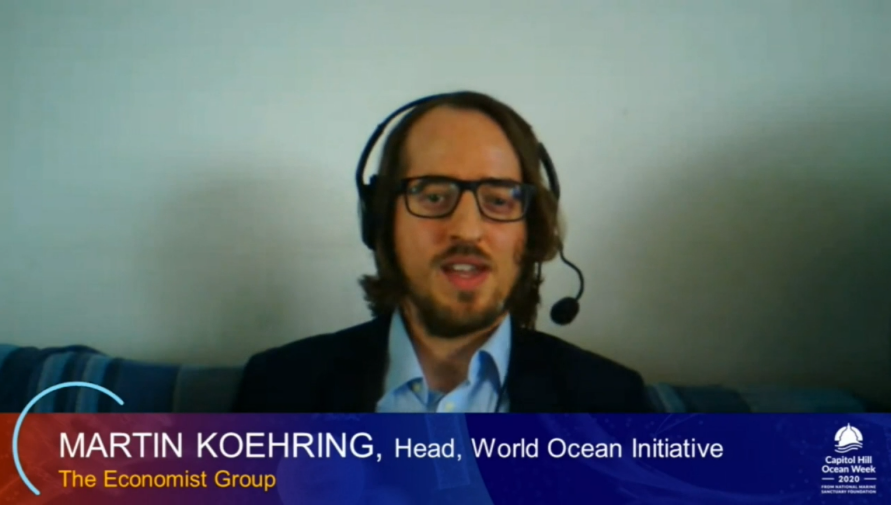During Capitol Hill Ocean Week 2020, organised by the National Marine Sanctuary Foundation, I moderated a great plenary panel discussion on the high seas. I was joined by six experts on ocean governance to discuss the prospects for a new high seas treaty.
The high seas lie beyond any country’s exclusive economic zone (the 200 nautical miles from a country’s shore). The high seas cover two-thirds of our ocean. They belong to everyone and no one. Their health and sustainable management are vital to the world ocean and people’s livelihoods.
There are many economic and business opportunities looming on the high seas that countries and companies are eager to harness, but there are also growing threats, such as climate change, overfishing, shipping, plastic pollution, and mining.
The importance of protecting the high seas
The panel discussed why protecting the high seas is essential and how first-ever global efforts are defining how countries can join together in the governance of these waters. We looked at the prospects for a new High Seas Treaty, also known as marine biological diversity in areas beyond national jurisdiction (BBNJ) agreement.
Panelists included the following experts:
• Callum Roberts, professor, University of York
• Kristina Gjerde, senior high seas advisor, Global Marine and Polar Programme, International Union for the Conservation of Nature
• Sophie Mirgaux, Belgium’s special envoy for the ocean, Federal Public Service Health – DG Environment
• Michael Imran Kanu, ambassador and deputy permanent representative for legal affairs, Permanent Mission of the Republic of Sierra Leone to the United Nations
• David Balton, senior fellow, Polar Center, Woodrow Wilson Institute
• Peggy Kalas, director, High Seas Alliance
Highlights from the discussion:
• Professor Roberts said that the high seas used to be seen as “nobody’s business”—now they are clearly “everybody’s business”.
• Kristina Gjerde discussed the fractured system of governance of the high seas and the challenges of shared stewardship.
• Sophie Mirgaux highlighted the EU’s ambitions for protecting the high seas. The EU has clear targets and criteria and wants to increase the EU’s network of marine protected areas to 30% by 2030.
• Ambassador Kanu outlined the African Group’s views on the high seas treaty negotiations, with a focus on sound management of natural resources; a strong institutional framework; and intergenerational justice.
• Ambassador David Balton highlighted the importance of the Arctic Ocean in the context of the high seas. There are lessons to be learnt for the high seas negotiations, especially the need to solve problems before they arise.
• Peggy Kalas said that improving high seas governance is vital as only 1% of the high seas are fully protected compared with 12% of land in the US. There’s an urgency to act, and this requires leadership.

